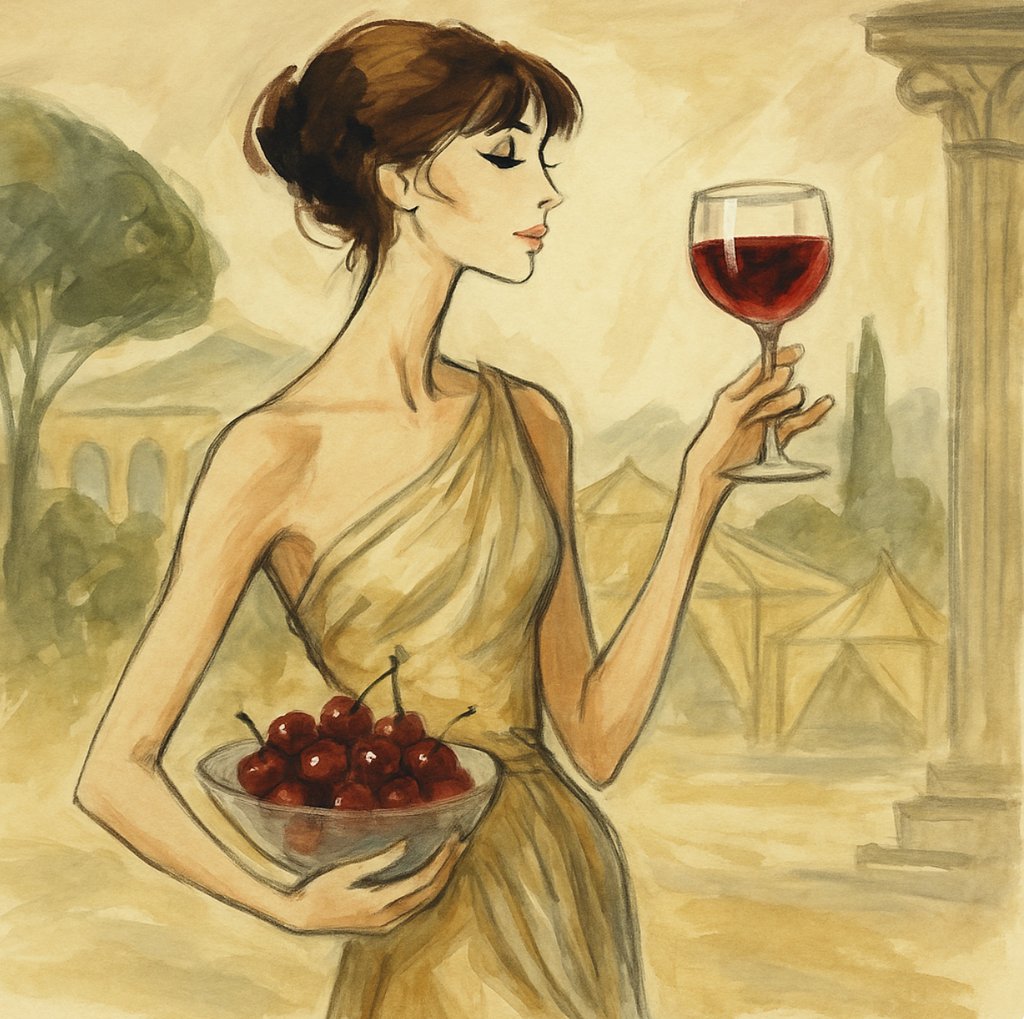Cherry Season and the Roman Feast of Neptunalia: A Celebration of Shade, Water, and Summer’s Bounty
On July 23, Romans honoured Neptune with wine, rustic tents, and feasts of cherries during Neptunalia, a festival of survival and summer abundance.
FOOD HISTORY & TRADITIONS


By late July, Rome was a city of heat. The sun blazed, wells grew shallow, and even the mighty aqueducts slowed to a trickle under the strain of drought. For the Romans, this was not just uncomfortable—it was dangerous. Water was life, and midsummer threatened its scarcity.
That’s why, every year on July 23, the Romans honoured Neptune, the god of the sea, rivers, and fresh waters, with a rustic summer festival called Neptunalia. Unlike the triumphal processions or gladiatorial games of other Roman holidays, Neptunalia was a simpler, earthier affair—a celebration of survival, gratitude, and seasonal abundance.
Among the foods enjoyed during this festival, cherries—a fruit relatively new to Rome at the time—became a bright, seasonal star, turning this moment of worship and respite into a feast that celebrated both the gods and the gifts of summer.
Neptunalia: The Festival of Shade and Water
Neptunalia was held during the hottest, driest stretch of the Roman year, when crops wilted and water supplies dwindled. To honour Neptune and seek his favour, Romans would leave the bustling city and gather in the countryside, setting up temporary shelters made from branches, reeds, and leaves. These makeshift structures, called umbrae(“shades”), offered a reprieve from the brutal sun.
The day was marked by offerings to Neptune, but just as importantly, by leisure and feasting. It was a rare moment for ordinary Romans to escape the city’s heat, share food and drink, and rest beneath the shade. Wine flowed freely, rustic dishes were shared, and seasonal fruits—especially cherries, apricots, and early grapes—provided sweet relief.
Cherries: From the Black Sea to Roman Tables
Cherries weren’t always part of Rome’s landscape. According to Pliny the Elder, the Roman general Lucullus is credited with introducing cherry trees to Italy around 72 BCE, bringing them from Cerasus (modern-day Giresun in Turkey) after his campaigns near the Black Sea. From there, cherry cultivation spread rapidly across the empire.
By the 1st century CE, cherries had become a coveted seasonal fruit, valued for their sweetness, tartness, and cooling qualities during the stifling Mediterranean summers. They were often eaten fresh but could also be preserved in honey or wine for later enjoyment.
During Neptunalia, cherries symbolised not just seasonal abundance, but the empire’s far-reaching connections. What had once been an exotic fruit from foreign soil was now a beloved part of Roman feasts, enjoyed alongside cheeses, nuts, and honey-sweetened wines beneath the leafy shelters of the festival.
A Festival of Practical Piety
While Neptunalia was technically a religious holiday, it carried a practical undertone. By late July, Rome’s reliance on its aqueducts was strained. Wells could run dry, and streams slowed. Honouring Neptune was both an act of piety and pragmatism—a way of asking for the water Rome needed to sustain its people and fields during the hottest days of the year.
The rustic nature of the celebration reflected this dual purpose. It wasn’t about grandeur or spectacle but about connection to the land and gratitude for its resources. Eating cherries, apricots, grapes, and other midsummer produce during Neptunalia wasn’t just indulgence; it was a recognition of how fleeting those gifts were, tied so closely to Neptune’s favour and the balance of the natural world.
Fun Fact: Cherries as a Legacy of Empire
Roman generals didn’t just bring home cherries for themselves—they helped plant them across Europe. Legionaries and settlers carried cherry pits wherever they went, cultivating orchards in Gaul, Hispania, and Britannia. By the end of the empire, cherry trees had become naturalised across much of the continent, ensuring that the fruit which graced Neptunalia feasts would endure long after Rome itself faded.
What Neptunalia Reveals About Roman Life
Neptunalia is one of those Roman festivals that feels deeply human. It wasn’t about war, conquest, or spectacle—it was about enduring the heat, celebrating nature’s bounty, and thanking the gods for the essentials: water, shade, and food.
For modern readers, it’s a reminder of how attuned ancient peoples were to the rhythms of the earth. Seasonal fruits like cherries weren’t taken for granted; their arrival marked both a joy and a moment to reflect on the fragility of the harvest, the land, and the resources that sustained them.
Next July 23, when cherries are at their ripest, you might consider marking Neptunalia in your own way—whether by finding some shade, pouring a glass of wine, or simply appreciating the fleeting sweetness of summer fruit as the Romans once did.
